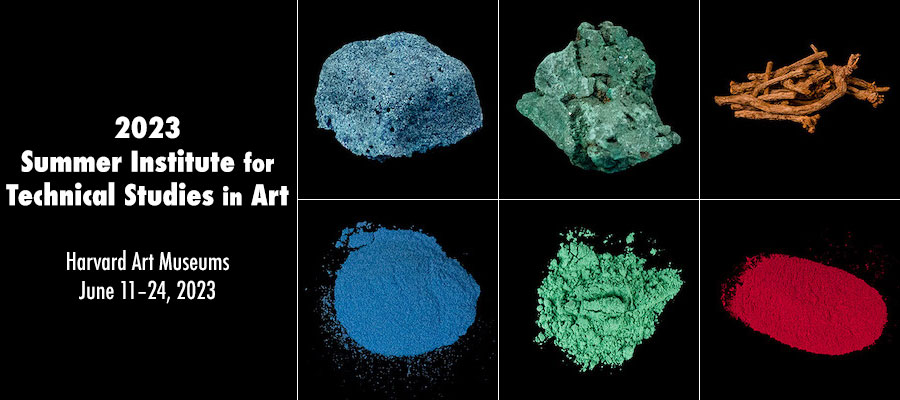2023 Summer Institute for Technical Studies in Art, Harvard Art Museums, June 11–24, 2023
Applications are welcome for this year's Summer Institute for Technical Studies in Art (SITSA). The course aims to introduce predoctoral students in art history with diverse backgrounds and research interests to the interdisciplinary approach that is core to the technical study of art and to building relationships that increase collaboration, enrich research, and enhance scholarship across the field of art history and beyond.
The two-week residential workshop is designed for emerging scholars and museum professionals who believe that their thinking will benefit from more experience with object-based and art-technical investigations. Throughout the course, participants will engage with an expert faculty of conservators, conservation scientists, curators, art historians, artists, and other makers in close looking, art making, and the scientific investigation of artworks and cultural artifacts.
This year’s Institute will focus on Color. What questions does the theme invite? How do they contribute to the critical and methodological discourses of art history, conservation, and curatorial practice? How do they relate to concepts of materiality and technique in artworks and cultural artifacts? What are the limits and possibilities of research into color by art historians, artists, scientists, conservators, and craftspeople, and what could be gleaned from other disciplines? What kinds of new knowledge are afforded through digital imaging and analytical technologies?
Participants will be provided with housing and a stipend of $1,800 to help cover round-trip travel costs, food, and incidental expenses for the duration of the program.
This workshop is made possible with support from the Mellon Foundation.
Eligibility
Art history students currently enrolled in or completing a doctoral program in North America are eligible to apply. No background in science or conservation is required, and any specialization is welcome. A maximum of 15 participants will be admitted to the program.
